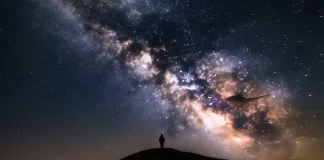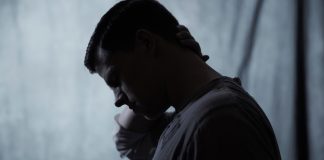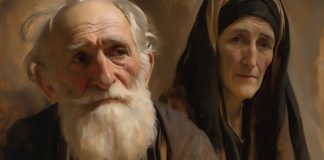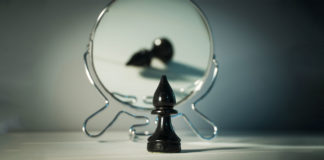The redefinition that conquered the world
For Carl Sagan, renowned astronomer and militant atheist, God's place in the universe was certain: "The cosmos is all that is, or ever was, or ever will be." For Richard Dawkins, exponent of the "new wave" of atheism, true science is necessarily atheistic and materialistic. This paradigm dominates the scientific world today.
Finding comfort in discomfort
It's been a few weeks since we moved house. After just two years in which we had managed to adapt, once again everything has changed: the environment that is closer to nature, the temperature, the housing, the placement of things in the house, the daily schedule, the children's school, the type of people we come into contact with, the type of activities, the...
COVID-19: What if we received bad news in a void?
What if there was no good news to give us confidence that we could get through the troubles facing us now? What if there was no good news to assure us that we are cherished, loved and supported, that we are not alone?
Understanding breast cancer
Breast cancer claims the lives of more women than most other forms of cancer. In the United States, the incidence of this disease in women is about one in eight, which is nearly 13 per cent, while in Australia and New Zealand it’s slightly lower at one in nine (11 per cent).
31 days of Christmas
I love Christmas, and opening Nathan Brown’s book, Advent: Hearing the Good News in the Story of Jesus’ Birth, reading each page, is like opening a carefully wrapped Christmas present, undoing the gift card attached with ribbon and bow, folding back the bright cellophane wrapping and lifting the lid off a curious little box containing the Gift itself. The gift in this case...
The war with Bacchus
On 17 January 1920, America officially "dried up". It wasn't a shortage of water or a prolonged drought, but a law banning the sale, transport, and commercial production of alcohol.
Gambling’s dark underbelly
Problem gambling in Australia and New Zealand is an issue seldom talked about, but we ignore it at our peril.
Antonyms will not exist forever
God is never the one to leave. He is the one who is abandoned. Even when Scripture describes Him as turning His face away, we understand that this is in fact the reluctant and painful recognition of man's decision to go beyond the point of no return in his relationship with God.
The road forwards that actually goes backwards
I am visiting two sick people who share the same terminal illness. Their suffering is increased by the fact that they are brothers and that a mother’s broken heart lies at the core of it all. One of them is a businessman. The other, a servant of the altar. Their mother’s greatest frustration is that her wish to take some of the suffering...
When the face of the world changes | The epistemological significance of the Protestant Reformation
After Jesus was born—that is, in the era we call Anno Domini (AD)—the history of mankind was different from that of Christianity. As it is known, the latter was not the history of a triumphant march of Christianity towards its universalization and the unification of the human race. On the contrary, this history can rather be characterised as a manifestation of “the great...
The happiest people in the pandemic
“How can we rejoice if we’re at war?” This was one of the questions that arose in my mind after reading a book comprised of testimonies of people who experienced World War II as children. Decades after this nightmare, and stricken by a crisis that casts its shadow over people and nations everywhere, the question remains: can we still be happy in times...
The end of drugs?
In mid-April 2014, the words 'scandal', 'secret', 'drugs', and 'Roche' (the Swiss drug giant) delighted the medical press, which was quick to publish tantalizing news about the ineffectiveness of Tamiflu and the enormous amounts spent by governments in order to stock up on the drug, in preparation for possible flu epidemics.
The story of blessed Ayyub
During the time when the people of Israel were enslaved in Ta Kemet (the Black Land), and Prince Moses, the great scribe, had taken refuge among the northern Arabian tribe of Midian, a captivating story shared by the campfire caught his attention. It was the tale of another prince who, like him, had suddenly lost everything.
Uncertain certainties and the fragility of reason
“For a long time I supposed that somewhere in the university, there were really clever people whom I had not yet met, and whom I should at once recognise as my intellectual superiors, but during my second year, I discovered that I already knew all the cleverest people in the university. This was a disappointment to me, but at the same time gave...
Everything about the person who can hold you back: A short essay about you
Albert Einstein didn't speak until he was 4 years old, and didn't read until he was 7. His parents thought he was mentally disabled, and one of the teachers described him as "mentally slow, unsociable, and adrift forever in his foolish dreams." He was expelled from school and denied admission to the Zurich Polytechnic.


























